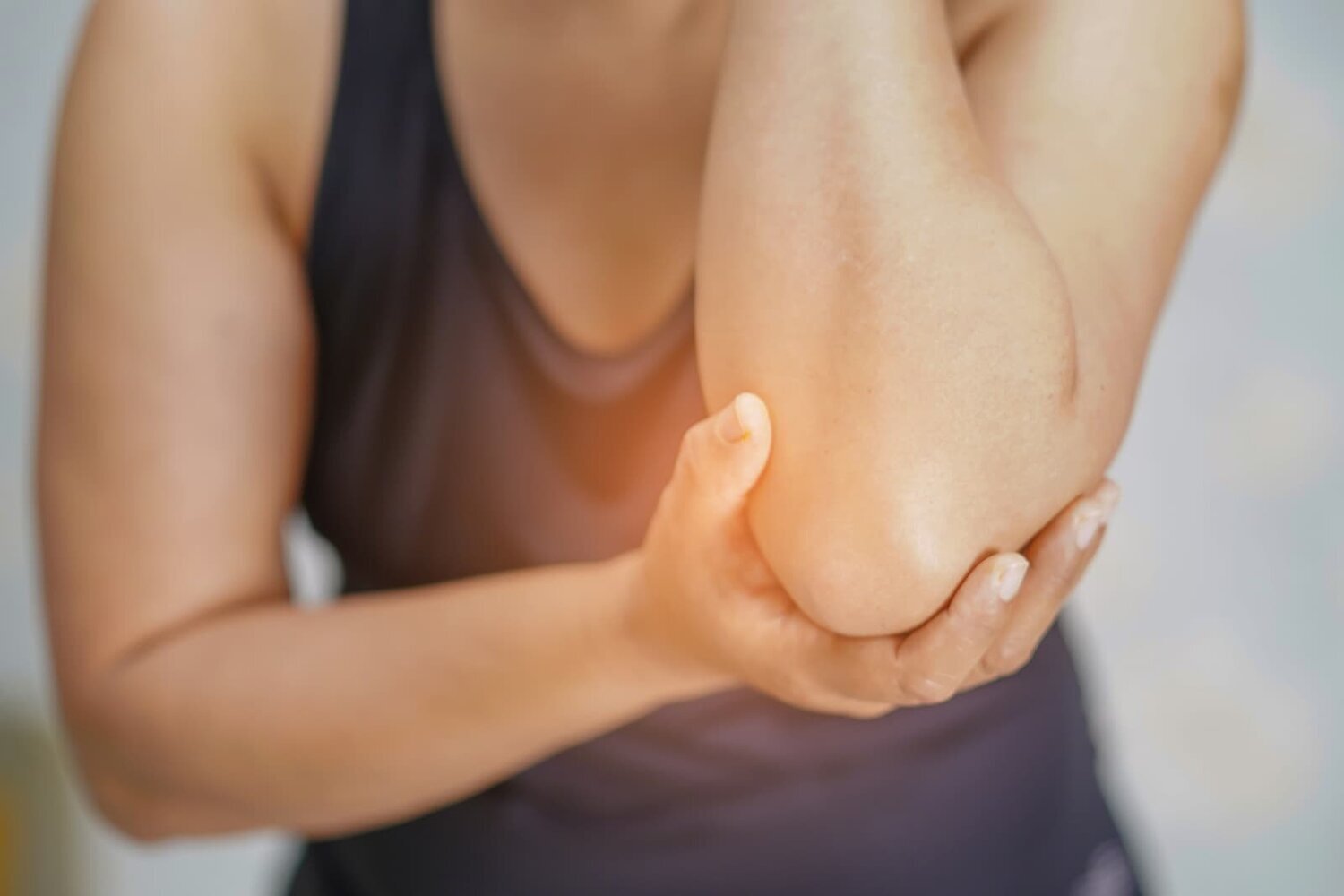Exercises for Your Tennis Elbow
Tennis elbow is an overuse injury that, despite the name, has a myriad of causes.
It’s a painful condition that can be brought on by anything from gardening to playing violin, banging your elbow on a door frame, or, you guessed it, playing tennis.
If the muscles and tendons in your forearm are strained from overuse during repetitive activities, tiny tears and inflammation can develop near the bony lump on the outside of your elbow.
The muscles in your forearm can be strained from overuse they’ll cause damage to the tendons that connect to the bones and cause tension.
This can cause the outside of your elbow and upper forearm to feel sore, tender, weakened, or stiff. Unfortunately, it can also make daily activities such as shaking hands (or touching elbows in true 2020 fashion) and turning a door knob painful to do.
Other causes of tennis elbow include, but are not limited to, activities such as;
Gardening
Painting
Careers in butchery, carpentry, and plumbing
Repetitive use of a keyboard and mouse
Once you stop doing the activity that caused the injury, it should recover on its own over time without needing a sling. The Royal Australian College of General Practitioners suggests, “that you remain active, but avoid actions that cause significant pain and don’t lift heavy objects with your hands facing down” (Health Direct, 2019). Using an ice pack and taking over the counter pain relievers such as paracetamol and ibuprofen can also help ease pain and symptoms.
However, if your pain does not improve after 6-12 weeks, you may want to see a physiotherapist who can suggest exercises to stretch and strengthen the muscles in your arm to ease recovery. They may also suggest that a brace or strap is worn on the forearm to reduce stress on the painful area.
“Remain active, but avoid actions that cause significant pain and don’t lift heavy objects with your hands facing down”
Health Direct, 2019
Exercises for Tennis Elbow
The following exercises serve to strengthen the muscles and tendons in the arm to help relieve pain from tennis elbow.
It is important to use smooth and controlled motions that do not painfully jerk your wrist during the exercises. You may want to put ice on your elbow after the exercises.
Right angle bend; this exercise can also be performed with a small weight
Bend your elbow at a right angle
Extend your hand with the palm facing up
Slowly twist your hand until the palm faces down and hold for 5 seconds
Repeat 10 times for 3 sets
Stress ball squeeze
Hold a stress ball or rolled up sock in your palm
Grip tightly for 10 seconds
Repeat 10 times
Towel twist; remember to keep your shoulders relaxed whilst completing this exercise
Twist a towel length wise in opposite directions as if wringing it out
Repeat 10 times
Wrist flex
Raise your arm in front of your body with your palm facing outwards
Use your other hand to slowly bend your fingers back towards yourself
Hold this position for 15 to 30 seconds
Straighten the wrist again
Repeat 3 times and do 3 more sets of the exercise
REFERENCES
NHS. 2017. CAUSES- TENNIS ELBOW. [ONLINE] AVAILABLE AT: <HTTPS://WWW.NHS.UK/CONDITIONS/TENNIS-ELBOW/CAUSES/#:~:TEXT=TENNIS%20ELBOW%20IS%20OFTEN%20AN,BANGING%20OR%20KNOCKING%20YOUR%20ELBOW.> [ACCESSED 18 SEPTEMBER 2020].
HEALTH DIRECT. 2019. TENNIS ELBOW. [ONLINE] AVAILABLE AT: <HTTPS://WWW.HEALTHDIRECT.GOV.AU/TENNIS-ELBOW#:~:TEXT=TENNIS%20ELBOW%20OCCURS%20WHEN%20THERE,BONE%20IN%20YOUR%20UPPER%20ARM.> [ACCESSED 18 SEPTEMBER 2020].
FAIRFIELD PHYSIOTHERAPY. N.D. 5 EXERCISES FOR TENNIS ELBOW REHAB. [ONLINE] AVAILABLE AT: <HTTPS://FAIRFIELDPHYSIOTHERAPY.COM.AU/5-TENNIS-ELBOW-EXERCISES/> [ACCESSED 18 SEPTEMBER 2020].
AUTHOR
ELLIE GRIFFIN, RHEA PSERECKIS
DISCLAIMER
THE CONTENT PROVIDED ON THIS WEBSITE IS FOR EDUCATION AND INFORMATION PURPOSES ONLY. IT IS NOT INTENDED TO REPLACE INDIVIDUAL HEALTH PROFESSIONAL CARE. READ OUR FULL DISCLAIMER HERE


